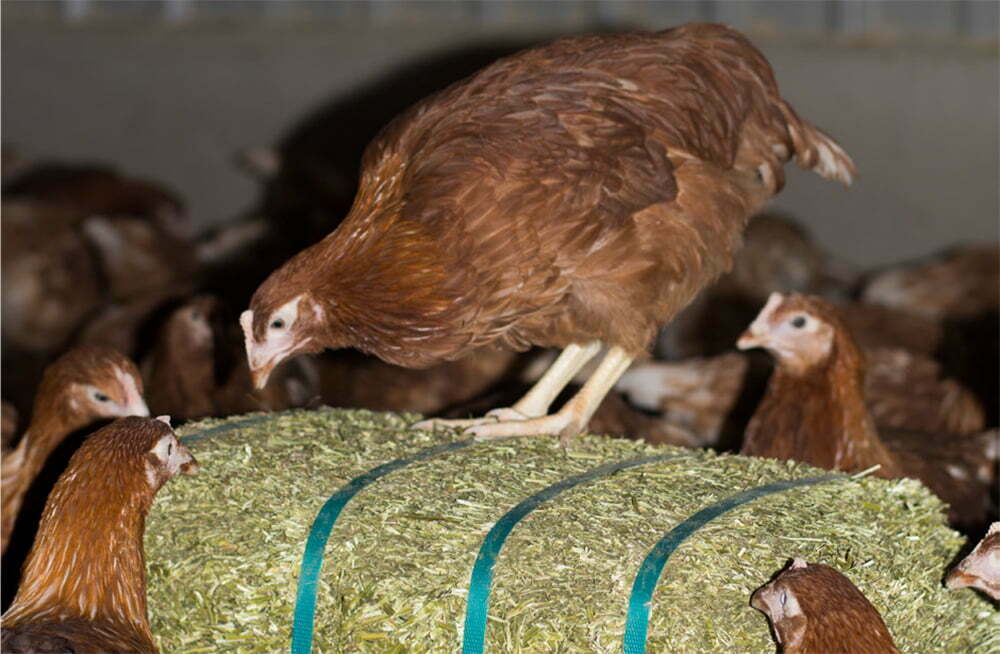Email or call us 01621 773883
Email or call us 01621 773883
Posted on June 6, 2022 and written by Dengie

Typically, free range hens are given some form of enrichment to encourage foraging behaviours and to try and reduce the incidence of injurious feather pecking. Hanging ropes are a common form of enrichment for hens but studies have shown these provide little or no benefit. So, what could provide the enrichment for poultry that is much needed in a free-range or barn egg system?
Enrichments are being used more widely due to the increasing emphasis on animal welfare. An enrichment to the environment can be described as an addition or modification that could, and should, improve the biological functioning of the flock. As an example, the RSPCA assurance scheme requires the use of two enrichments per 1000 birds, some of which must be destructable. Of course, any form of enrichment comes at an economic cost and this, too, needs to be balanced.
Pecking, which can start as feather plucking but can lead on to vent damage and cannibalism is thought to be re-directed foraging behaviour, especially in hens looking for more fibre in their diet. The aim is therefore to redirect pecking behaviour towards an object that ideally, also has a nutritive value. This is where hanging CDs, balls etc fall short as they do not break apart when pecked which is an essential part of mimicking foraging, and obviously they have no nutritional value.
An enrichment that has a nutritive element can influence feed intake, egg production and egg quality. Whilst Rumiluz Poultry SB™ has no effect on body mass or egg-breaking quality it has been shown to have a small positive effect on egg production – possibly due to the quality of the protein and fibre. Straw enrichment, which has no quality nutrition has a mild detrimental effect on production, as the consumed fibres are usually at the expense of the feed. It should also be noted that the Rumiluz lucerne bales have been subjected to heat during manufacture, reducing contamination from mycotoxins and micro-organisms.
A study by the SRUC, in Edinburgh, investigated the efficacy of recommended enrichments (including rope) across eight different flocks studying both behaviour and feather cover. Based on an assumed replacement rate, the study also looked at the costs involved in providing enrichments to 16,000 hens over a 64-week period. Rumiluz Poultry SB™ cost 30 percent less than scattering a pelleted feed and was just one third of the cost of pecking blocks. A potential £4000 saving during the period.
Based on a balance of cost and efficacy, Rumiluz Poultry SB was found to be the best option for providing enrichment to hens. With a guaranteed minimum quality and fully traceable, Rumiluz Poultry SB™ is heat treated during the dehydration process to ensure no bacteria remain. The bales are then packaged to ensure no contamination occurs during storage.
Rumiluz Poultry SB™ can then be placed in hay-nets and hung in the poultry houses. The bales are tightly packed with plastic strapping, ensuring a firm surface for the birds to peck.
For further information click here to contact us and find out what benefits quality Lucerne has to offer your poultry.